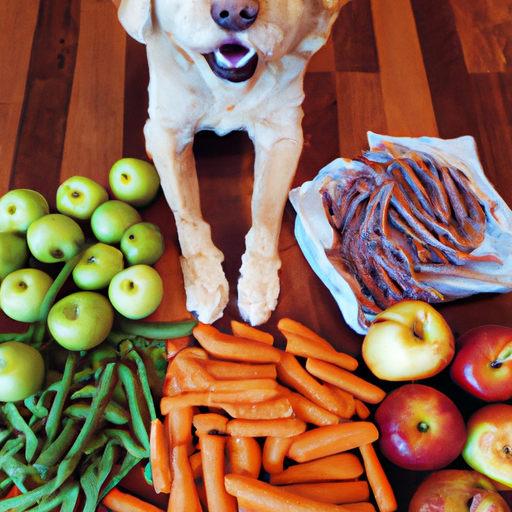Why Fiber Matters
As a caregiver, you understand the importance of providing optimal nutrition for your furry friend. Just like you, your dog requires a balanced diet to maintain good health, and fiber plays a crucial role in that equation. Fiber isn’t just essential for humans; it’s equally important for dogs. It aids digestion, helps maintain weight, and can even potentially reduce the risk of certain diseases.
Types of Fiber
There are two main types of fiber: soluble and insoluble. Understanding the difference between them can help you make the best dietary choices for your dog.
-
Soluble Fiber: This type of fiber attracts water and turns to gel during digestion. This helps slow down digestion, and thus, provides a feeling of fullness. Soluble fiber can be found in fruits, vegetables, and oats.
-
Insoluble Fiber: This type of fiber adds bulk to the stool and can help food pass more quickly through the stomach and intestines. Insoluble fiber can be found in whole grains, wheat bran, and vegetables.
Fiber-Rich Foods for Dogs
Now let’s delve into the list of fiber-rich foods that are safe and beneficial for dogs:
-
Pumpkin: Both raw and cooked pumpkin is safe for dogs. It’s a great source of fiber and even helps with digestive regularity.
-
Sweet Potatoes: These are packed with fiber, vitamin A, and other nutrients. They are also easy to digest and can be a great addition to your dog’s diet.
-
Carrots: Carrots are low in calories and high in fiber and vitamin A. They can be an excellent treat for your dog.
-
Apples: Apples are a good source of fiber, as well as vitamin A and C. Just remember to remove the seeds and core before feeding them to your dog.
| Food | Fiber Content | Beneficial Nutrient |
|---|---|---|
| Pumpkin | 3g per cup | Vitamin A |
| Sweet Potatoes | 4g per cup | Vitamin A |
| Carrots | 3.4g per cup | Vitamin A |
| Apples | 4.4g per apple | Vitamins A & C |
How Much Fiber Does Your Dog Need?
Determining the right amount of fiber for your dog can be a bit tricky. It depends on various factors such as age, size, activity level, and overall health. Generally, the fiber content in a dog’s diet should make up about 2-5% of the total dietary intake. However, it’s always best to consult with your vet to determine the precise amount your dog needs.
FAQs
Q1: Can too much fiber be harmful to dogs?
Yes, excessive fiber can lead to digestive issues like gas, bloating, and diarrhea. Always balance the fiber intake.
Q2: Can I feed my dog human fiber supplements?
No, human fiber supplements may not be suitable for dogs. Consult with your vet before giving your dog any supplements.
Q3: How can I introduce fiber to my dog’s diet?
Start slowly and gradually increase the amount of fiber to prevent any digestive upset. You can mix fiber-rich foods with your dog’s regular food.
Q4: Can fiber help with my dog’s weight management?
Yes, fiber promotes a feeling of fullness, which can help control overeating and maintain a healthy weight.
Remember, as a responsible caregiver, the health of your fur baby is in your hands. Choosing the right diet can make a huge difference in their overall well-being.



